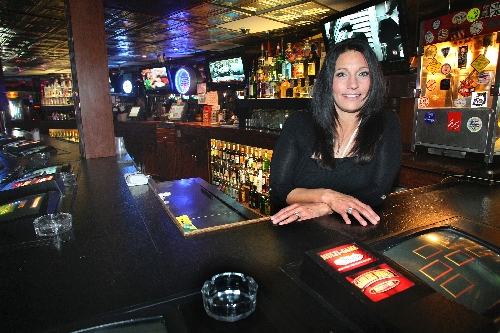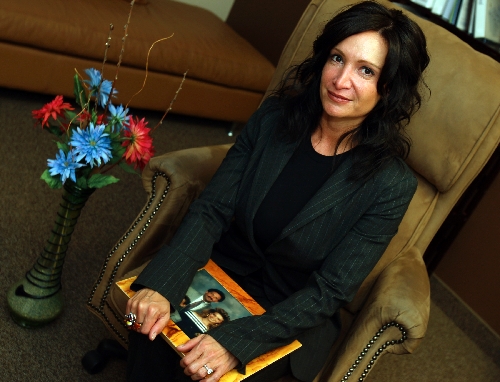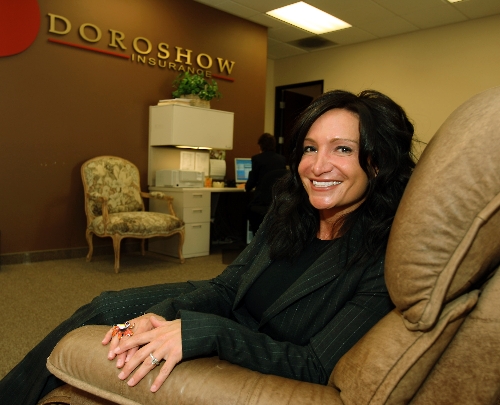Grief intensifies for people trying to keep family businesses thriving
When Robyn Doroshow joined her dad in the family insurance business in 1997, it marked only the beginning of what she envisioned as a long career working for him, soaking up his knowledge, until the day came for him to retire and for her to take over.
After six weeks on the job, she had learned enough to know this: There was so much more she needed to learn. At 24, she had some sales experience and an insurance license. But she was green and looked forward to learning the ropes from her father, an employee benefits broker and insurance salesman.
Then the worst happened: Her father, Steve, died of a massive heart attack. He was only 47, seemingly fit and healthy, aside from a smoking habit. In an instant, their best laid plans for the family business were destroyed and Doroshow entered into even newer territory: dealing with the family business after an important member of the family dies.
It can be a "baptism by fire," as Kurt Wiesner, chief executive officer and president of Big Dog's Hospitality Group, calls it. Although he had plenty of experience and time with the company, that experience was put to the test during his father Tom's battle with acute myeloid leukemia in 2001.
Wiesner had to deal with changes in the company -- downsizing, layoffs, the transfer of leadership -- while also facing his father's illness and then death.
"There was a lot of automatic pilot during those times," says Wiesner, 38.
There are unique grief concerns for people who own a family business, says Darlene Cross, a local therapist who specializes in bereavement counseling. At home, people are surrounded by reminders of their loss, so work becomes an important part of healing from a family death, Cross says. The job can serve as a distraction, something that gets the mind off of the recent loss. The workplace becomes a sanctuary, the one place a person isn't surrounded with constant reminders of his or her loved one.
Not so with a family business, Cross says. Not only are the reminders there, but so too are the responsibilities they left behind, things that now fall on the shoulders of survivors.
At the time of his death, Doroshow and her father were planning to grow the business. They had just knocked down walls to expand the office, and she looked forward to taking on some of his responsibilities and recruiting more business. After his death, the opposite happened. He died on a Sunday and Robyn took two days off, returning to work on Wednesday and finding faxes from clients saying they had gotten a new broker.
"I probably lost 85 percent of the business," Doroshow recalls. "My grieving process was really cut short. This business was his legacy and I had an urgency to get back and not let his dream die."
Not only did she have to find a way to secure and maintain clients, Doroshow had to do it while grieving her father's death in a way that wouldn't disrupt his business, now hers.
In some cases, though, the business can actually help people through the grieving process by giving them a mission, Cross says.
That's how Kristin Bartolo, 38, viewed her role as the owner of Dino's bar. The bar had been established by her grandfather, Dino, in 1960, Bartolo says. Her father, Chuck, inherited the bar from his dad and, when he died of a stroke nine years ago, Kristin Bartolo took over.
"I felt and I feel like even now, I do everything I can to make this bar a success because it's been passed down so much," Bartolo says. "I wasn't going to let it fail under me."
Bartolo found it difficult, though. The bar had taken on so much of her father's personality and she felt it daily.
"I'm not sure I'm really over him dying," Bartolo says. "It was the hardest thing in the world. It's really hard, every day and it's been nine years."
Bartolo's father had prepared for his own death, ensuring that he had a will and trust set up and clear instructions on the business. The father and daughter even joked about what would happen after he died.
"He'd get mad at me because I hadn't worked enough hours or something and say, 'This bar will be out of business six months after I die,' " Bartolo says.
Wiesner's father had time before his death to talk to his son about the business and to plan for his eventual death. But most people don't, Cross says. And when they don't, it makes the process much longer and more difficult.
"It's a nightmare, people don't want to talk about it or think about it, they may think they're invincible," says Cross, who owns a family business with her adult son. She has made contingency plans for the business in the event of her death.
Doroshow's father did not have a plan, even though he had talked to her about his death a week before it happened. During a car trip, he started talking about what would happen to his family and his assets if something bad happened to him.
"I've always wondered if he felt something," Doroshow says.
Over the years, Doroshow, 36, has re-established Doroshow Insurance. She increased client offerings, giving them more services and features than they had before. She installed computer systems and incorporated more technology into the business.
As accomplished and established as Dorowshow is today, she still misses her father's input and sometimes wonders what he might have taught her. Sometimes, she visits his grave site and tells him about the things she has done or a success she has had.
"We didn't spend a lot of time together, it was not enough time to tell me about who to stay away from, what to do," she says. "There was no advice there, I wish there would have been."
Contact reporter Sonya Padgett at spadgett@review journal.com or 702-380-4564.



















